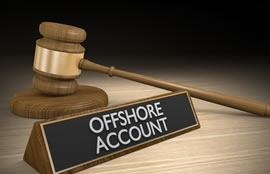7 Aug 2018
Common Reporting Standard (CRS) for non-UK income

The Requirement to Correct – Are your tax affairs up to date?
Since the introduction of the automatic exchange of information in 2016, over 100 jurisdictions around the world, including the UK, have signed up to the Common Reporting Standard (CRS) which is due to become fully effective from September 2018.
In a bid to tackle global tax avoidance, the CRS was commissioned to enable countries to exchange taxpayer information with other participating countries. Overseas financial institutions (such as banks or managed investment funds) are now obliged to provide details to HMRC relating to UK resident taxpayers with HMRC expected to return the favour to foreign tax authorities.
The Requirement to Correct
Given the vast amount of overseas tax data now available to HMRC, it is (perhaps unsurprisingly) pouring its resources into uncovering additional UK tax liabilities arising from undisclosed offshore income. The Requirement to Correct provisions create a statutory obligation for taxpayers to disclose and settle any previously undeclared liabilities relating to offshore assets by 30th September 2018.
Who does this apply to?
The Requirement to Correct provisions apply to anyone with undeclared UK income tax, capital gains tax and/or inheritance tax liabilities relating to overseas income that arose prior to 6th April 2017. Typically, most undisclosed liabilities for individuals are likely to arise on sources of offshore income such as bank interest and dividends or assets situated outside of the UK such as real estate.
Why should I make a disclosure?
Although there may be penalties arising on liabilities disclosed prior to the deadline, they’re a hard slap on the wrist when compared to a disclosure or discovery arising after 30th September. Penalties following the September deadline may include:
- A tax geared penalty of 200% which may be reduced to 100% based on taxpayer cooperation
- Where the tax at stake is £25,000 or more, an asset based penalty of 10% based on the value of the asset giving rise to the liability or ten times the tax due
- An additional asset move penalty of 50% where assets or funds have been moved in an attempt to avoid disclosing them
- Exclusive entry into HMRC’s online ‘hall of shame’
These penalties will not apply if an individual’s affairs are brought up to date by the deadline although taxpayers should expect a potential penalty of 30% plus statutory interest to be added to any outstanding taxes.
Similarly, the penalties will not apply if a taxpayer has a ‘reasonable excuse’ as to why the income has not been disclosed. This is intended to cover situations involving illness or serious injury but does not remove the requirement to settle the outstanding tax liability.
How can Monahans help?
We would strongly recommend that any taxpayer with offshore interest, income or assets should satisfy themselves that their UK tax position is up to date and/or make a full disclosure to HMRC prior to 30th September 2018. Even if you believe that your tax affairs are in order, you may still be liable to a penalty under the Requirement to Correct legislation if it later transpires that a disclosure should have been made.
Monahans can provide detailed specialist advice on your position and assist you in making any necessary disclosures to HMRC. If you are concerned about your overseas interests, please do not hesitate to contact us.